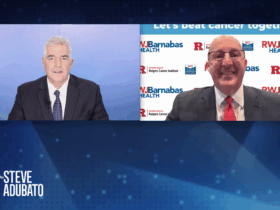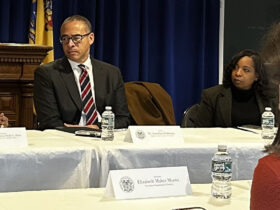 When voters oppose all of the running candidates in an election, some will write in their preferred candidates onto a ballot. Underneath the running candidates, there may be a blank space to write in any name on an election ballot. Those who dislike the already present options may choose to utilize this space and choose someone else. In fact, in 2016, the number of presidential write-ins skyrocketed. In Knox County, Tennessee, nearly 4,000 citizens wrote in a different name for a presidential candidate instead of choosing either Hilary Clinton or Donald Trump. Although it may seem like an understandable option for those who oppose both Clinton and Trump, it can actually harm the outcomes of elections. In 2016, hundreds of thousands of Americans actually wrote different names, from former candidates to celebrities such as Kanye West to religious figures such as Jesus to even fictional characters such as Mickey Mouse. Yes, the comedic effect is evident. But, political elections are no joke.
When voters oppose all of the running candidates in an election, some will write in their preferred candidates onto a ballot. Underneath the running candidates, there may be a blank space to write in any name on an election ballot. Those who dislike the already present options may choose to utilize this space and choose someone else. In fact, in 2016, the number of presidential write-ins skyrocketed. In Knox County, Tennessee, nearly 4,000 citizens wrote in a different name for a presidential candidate instead of choosing either Hilary Clinton or Donald Trump. Although it may seem like an understandable option for those who oppose both Clinton and Trump, it can actually harm the outcomes of elections. In 2016, hundreds of thousands of Americans actually wrote different names, from former candidates to celebrities such as Kanye West to religious figures such as Jesus to even fictional characters such as Mickey Mouse. Yes, the comedic effect is evident. But, political elections are no joke.
During the shockingly close 2016 election when a large portion of the population refused to support either candidate, fewer than 80,000 votes swung the results. In elections this close, write-in voting is simply unreasonable. Whether the write-in votes were comedic or serious, they have virtually no significance towards the overall outcome of a presidential election. In fact, some states do not allow write-in votes while others will not count them. Furthermore, no president has ever been elected from write-in votes.
Instead of giving a chance to others, write-in votes will instead work unfavorably towards the current candidates at hand. Let’s say that you wrote Bernie Sanders in your election ballot instead of Clinton or Trump because you didn’t support either candidate. Indeed, it is a democratic right to demonstrate your voice during these elections. However, you can think of your vote as near irrelevant because they take away possible votes for the nominated candidates. In other words, neither Clinton nor Trump will receive your vote, and since write-in votes are nearly impossible to elect a different person as president, your vote will not bring Sanders to the top. Instead of writing in Sanders, perhaps you should have chosen Clinton because they both represent the Democratic party. Although these candidates may not be your favorite, their stance on certain issues may align with yours. Or, at the very least, choose the candidate that your preferred person supports. After dropping out of the election, Sanders endorsed Clinton as an attempt to unify the Democratic party and beat Trump. In this particular situation, voting for Clinton would convey support towards Sanders as well as directly affect the results of the election.
While write-in voting is ultimately pointless in presidential elections, the same cannot be said in local elections. In mayoral, gubernatorial, and even state elections, write-in candidates have seen success: Mike Duggan, James Maher, and Michael Sessions all became mayors of their respective towns after winning as write-in candidates. For reasons as silly as forgetting to fill out the paperwork to appear on the ballot, many have campaigned to win the write-in vote. The reason why write-in candidates have more success in local elections is simple: they have fewer people to campaign for. In other words, it is easier for these candidates to reach their desired demographic, as they only need to influence those in smaller communities and towns as opposed to the entire nation. Therefore, with local elections, writing in a candidate may be a clever choice, but make sure to research and educate yourself on who you choose to vote for. It may not be smart to write the name of someone who has not shown interest in working in office or campaigned before.
Ultimately, writing in a candidate for the presidential election is a foolish way to exercise such a powerful democratic right. If the candidates already on the ballot seem unbearable, first consider the candidates’ backgrounds, party affiliation, and policies and choose the “lesser of two evils” rather than skipping Election Day or writing in a different name.














